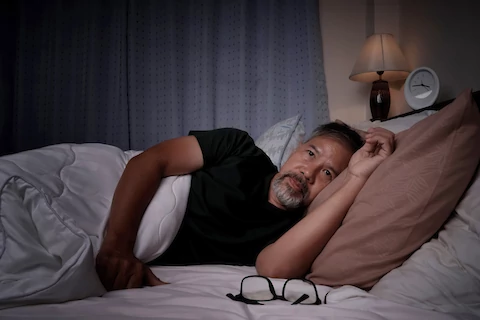
Sundowning is a common occurrence in individuals with Alzheimer's that can cause confusion, anxiety, and agitation during the evening hours. If you or a loved one is experiencing the early stages of Alzheimer's, it's important to be aware of the potential triggers of sundowning and find ways to minimize its effects. By focusing on establishing good habits and creating a comforting atmosphere, we aim to help you navigate this challenging period with greater ease and peace of mind. Let's dive in!
1. Establishing a Consistent Evening Routine
Consistency is key when it comes to reducing anxiety and creating a sense of stability. Establishing a regular evening routine can help maintain your circadian rhythm and promote better sleep, both of which can contribute to minimizing sundowning symptoms.
Set a regular bedtime and wake-up time. Going to bed and waking up at the same time every day can help regulate your internal clock and make it easier to fall asleep at night. Incorporate calming activities. Before bedtime, engage in relaxing activities such as reading a book, listening to soft music, or taking a warm bath. These can also help signal your brain that it's time to wind down and prepare for sleep.
Limit exposure to screens and bright lights. Exposure to the blue light emitted by electronic devices can disrupt your sleep cycle. Try to limit your screen time in the evening and create a dimly lit environment to help relax before bed.
2. Creating a Comfortable and Calming Environment
A familiar and soothing atmosphere can play a significant role in reducing anxiety and promoting relaxation. Moreover, designing a comfortable living space can help ease anxieties and minimize the symptoms of sundowning. Keep the living space organized and clutter-free. An organized environment can help reduce confusion and support clearer thinking. Regularly decluttering and keeping items in their designated places will make it easier to navigate the space and find items when needed.
Additionally, use calming colors and soft lighting. Opt for soft, warm colors and lighting in your living area and bedroom. These create a cozy atmosphere that can help promote feelings of relaxation and calm. Display photos of loved ones and familiar items. Surrounding yourself with familiar faces and cherished belongings can create a sense of comfort and belonging, reducing feelings of isolation and confusion.
3. Engaging in Relaxing Activities
Incorporating activities that promote relaxation and reduce stress can help alleviate the symptoms of sundowning and anxiety. Listen to calming music or nature sounds. Soothing sounds can help create a peaceful atmosphere and help clear the mind.
Practice deep breathing or meditation. Mindfulness practices, such as deep breathing exercises or meditation, can help you manage stress, and anxiety, and calm the mind. Moreover, engage in gentle exercise. Regular, gentle exercise like stretching or yoga can help release tension and promote relaxation. Always touch base with your doctor before starting any new exercises.
4. Maintaining Social Connections
Social interaction is crucial to reducing anxiety and improving overall well-being. By staying connected with friends, family, and the community, you feel more grounded and supported.
Schedule regular visits or phone calls with friends and family. Maintaining strong relationships with loved ones can also help provide a sense of belonging and reduce feelings of isolation.
Join a support group or social club for seniors. When you connect with others who share similar experiences, it can provide a valuable support network and help reduce anxiety.
In addition, participate in community events or volunteer opportunities. Staying active and involved in your community can keep you engaged and help you build new connections.
5. Seeking Professional Support
Working with healthcare professionals to manage Alzheimer's symptoms and reduce anxiety is essential. Professional support can also help you develop coping strategies and explore additional treatment options.
Senior Helpers Yardley Provides Care for Seniors With Alzheimer's
Avoiding the triggers of sundowning and anxiety is crucial for individuals with Alzheimer's. By implementing the strategies discussed in this blog post, you can create a supportive environment and establish routines that promote relaxation and well-being. If you live in Southampton, Bensalem, Langhorne, Morrisville, Levittown, or Bucks County, contact Senior Helpers Yardley for professional in-home care services tailored to meet your unique needs.